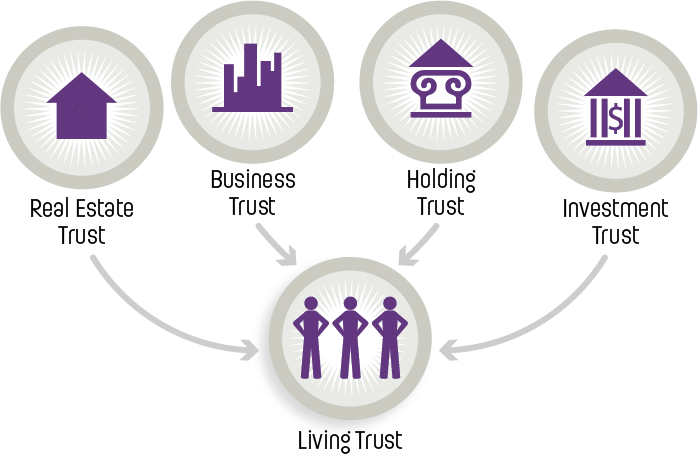How does an irrevocable living trust work?
Before getting to this, let’s first clear ourselves with what actually a living trust is.
Living trusts are an essential part of estate planning. A living trust, simply put, is a legal arrangement for those looking to pass on their property to loved ones without any administration hassles. It involves three parties:
1. “trustor/grantor” who creates the trust
2. “trustee” who holds the property
3. “beneficiary” who receives the benefit
Living trust or inter vivos trust is created as either a revocable or irrevocable trust.
Irrevocable Trust as the name suggests cannot be revoked or dissolved by the grantor once it has been created. This means your property now belongs to the trust, not you.
A revocable trust, on the other hand, allows the grantor to alter the trust anytime and take the property back.
Why an irrevocable living trust?
You might be wondering why would someone put their money in a living trust by hiring an estate planning lawyer, they can’t change? The primary reason is that they want to reduce taxes and protect their property. Of course, one has to trade off with losing control over their assets. Here are some other ways in which an irrevocable living trust works:
● Estate Tax Reduction
The most significant advantage of irrevocable trust is that it allows you to minimize estate taxes. Property placed in an irrevocable trust is no longer taxable since it has been transferred to the trust while the grantor is still alive.
● Asset Protection
Another major advantage of an irrevocable trust is asset protection. Since assets in trust no longer belong to grantor, creditors can’t touch irrevocable living trusts. This serves individuals who are seeking to shield their property from legal claims.
● Medicaid Planning
In Elder Planning, an irrevocable living trust attorney can prove beneficial to seniors who want Medicaid benefits. Elders must essentially get rid of what they own so that can qualify for Medicare to fund long-term care.
● Beneficiary Protection
Sometimes, such trusts come with “spendthrift” clauses to protect assets from being squandered off. This allows for the property to be protected from beneficiaries’ creditors.
How to create an irrevocable living trust?
Irrevocable trusts are quite a complicated legal arrangement and may not be suitable for each and every situation. Decision to create such a document requires careful consideration of settler’s objectives, assets and income, health and care needs etc.
Preparing an irrevocable trust will require drafting an agreement. Though templates are readily available, but users need to be judicious with words to explain their exact intent in the legal document. You can consult a local Los Angeles estate planning lawyer who will help you draft the trust tailored to your needs.

